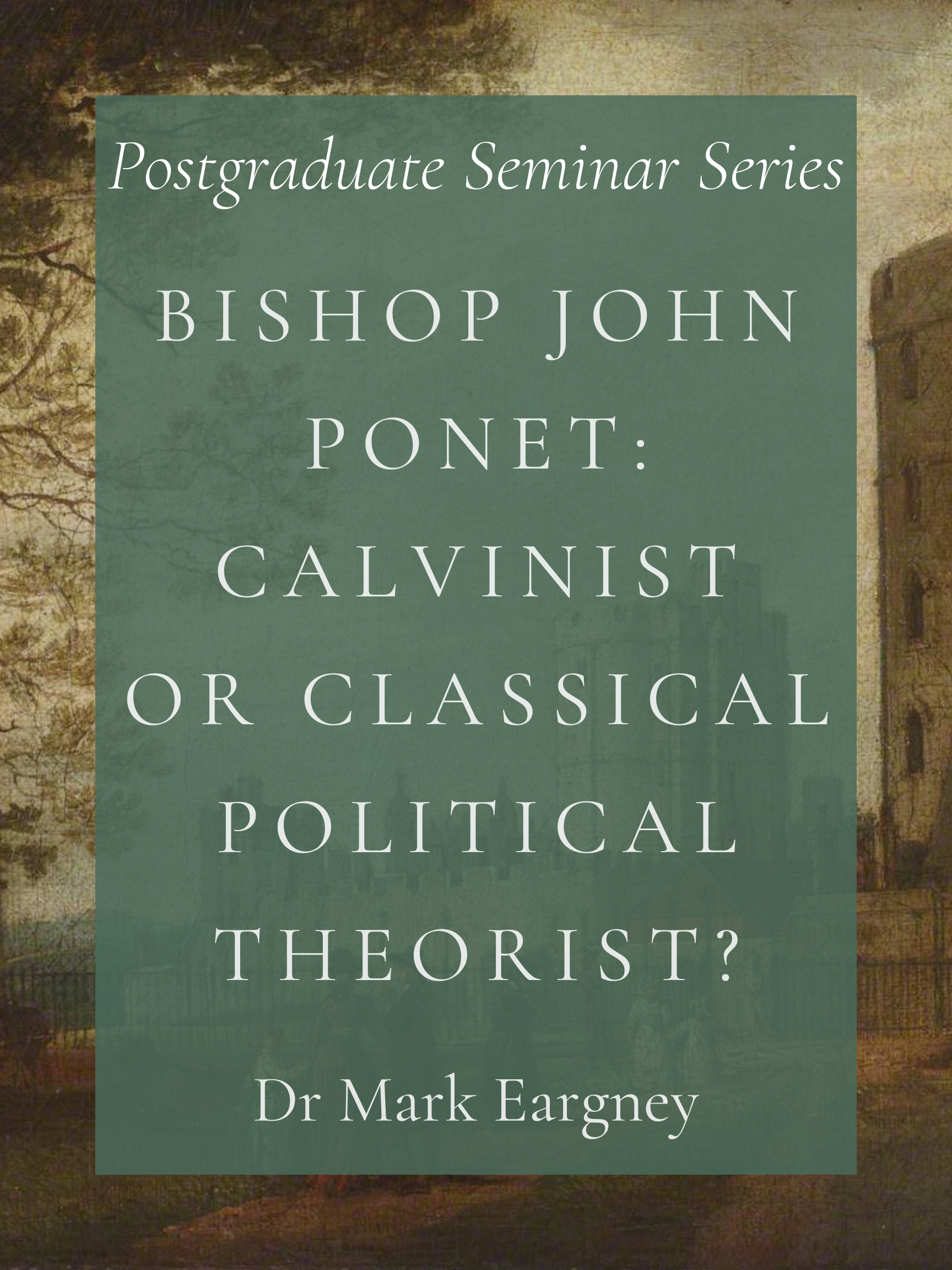Bishop John Ponet: Calvinist or Classical Political Theorist?
Bishop John Ponet (1516-1556) was the highest ranking English ecclesiastic on the continent during the Marian exile. From Strasbourg he authored an important treatise on political theology (Shorte Treatise of Politike Power, 1556), which according to former US President John Adams, ‘contains all the essential principles of liberty, which were afterwards dilated on by Sidney and Locke’. This was the first piece of political theology written by an English reformer that advocated for limited monarchy, and even tyrannicide in the case of an ungodly ruler. Various modern political historians and theologians have assumed Ponet received his ideas from John Calvin and have thus cast him as a ‘Calvinist resistance theorist’. Is this the case? By surveying a range of newly discovered books owned and annotated by John Ponet we will observe the surprising sources behind his array of progressive political ideas. Furthermore, we will observe how his ideas were born during his time in Cambridge and only afterwards came to fruition during the conditions of exile. Dr Eargney will begin the seminar with some discussion of new techniques in Reformation research and will outline how these techniques may enable significant contributions to our knowledge of the period.
Bishop John Ponet (1516-1556) was the highest ranking English ecclesiastic on the continent during the Marian exile. From Strasbourg he authored an important treatise on political theology (Shorte Treatise of Politike Power, 1556), which according to former US President John Adams, ‘contains all the essential principles of liberty, which were afterwards dilated on by Sidney and Locke’. This was the first piece of political theology written by an English reformer that advocated for limited monarchy, and even tyrannicide in the case of an ungodly ruler. Various modern political historians and theologians have assumed Ponet received his ideas from John Calvin and have thus cast him as a ‘Calvinist resistance theorist’. Is this the case? By surveying a range of newly discovered books owned and annotated by John Ponet we will observe the surprising sources behind his array of progressive political ideas. Furthermore, we will observe how his ideas were born during his time in Cambridge and only afterwards came to fruition during the conditions of exile. Dr Eargney will begin the seminar with some discussion of new techniques in Reformation research and will outline how these techniques may enable significant contributions to our knowledge of the period.
Bishop John Ponet (1516-1556) was the highest ranking English ecclesiastic on the continent during the Marian exile. From Strasbourg he authored an important treatise on political theology (Shorte Treatise of Politike Power, 1556), which according to former US President John Adams, ‘contains all the essential principles of liberty, which were afterwards dilated on by Sidney and Locke’. This was the first piece of political theology written by an English reformer that advocated for limited monarchy, and even tyrannicide in the case of an ungodly ruler. Various modern political historians and theologians have assumed Ponet received his ideas from John Calvin and have thus cast him as a ‘Calvinist resistance theorist’. Is this the case? By surveying a range of newly discovered books owned and annotated by John Ponet we will observe the surprising sources behind his array of progressive political ideas. Furthermore, we will observe how his ideas were born during his time in Cambridge and only afterwards came to fruition during the conditions of exile. Dr Eargney will begin the seminar with some discussion of new techniques in Reformation research and will outline how these techniques may enable significant contributions to our knowledge of the period.


